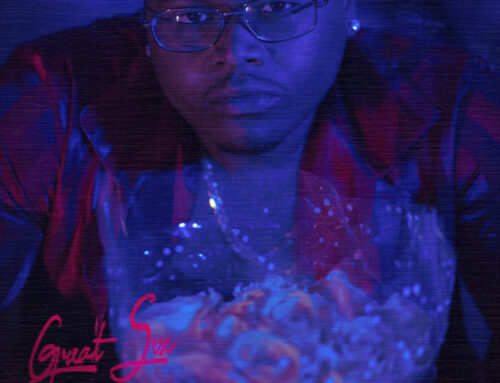[vc_row][vc_column width=”1/2″][vc_single_image image=”5958″ img_size=”full”][/vc_column][vc_column width=”1/2″][vc_single_image image=”3084″ img_size=”full”][/vc_column][/vc_row][vc_row][vc_column][vc_column_text]
DOWNLOAD HERE!!!
https://itunes.apple.com/us/album/trap-money-crack-money-single/1398034776[/vc_column_text][/vc_column][/vc_row]
No matter where a person is or where they’re from, they need to adapt to their surroundings. That’s a lesson BoDi Deeder learned early in life. Growing up in gang-ravaged Chicago and later splitting time between the Windy City and its southern suburbs, he was surrounded by gangsters and drug dealers on the one hand, and rich suburbanites on the other.
This disparate background helped BoDi Deeder create Trap Fever, his most captivating project to date. It’s a collection of high octane music that represents the entrepreneurial spirit, regardless of the hustle.
“I represent the trap life, the hustler, all facets,” BoDi Deeder reveals. “Whatever your hustle is, that’s your trap. The fever part of it is to affect the people around you, to spread that energy around. Whatever you’re doing, you’re going hard at it every day, and you’re spreading it. I just want them to get sicker with it. Whatever your hustle is, infect the people around you. Give them that energy, that inspiration, that push.”
For the infectious Trap Fever song “Trap Money Crack Money,” BoDi Deeder drew inspiration from the different ways people in Chicago hustle. Two of the most prominent ways people get it in on the streets are trapping, which is grimy, and cracking, which is more flamboyant, in your face. Regardless, BoDi Deeder champions people working hard to create opportunities for themselves.
“It’s me telling people that whatever your hustle is, don’t hate,” he explains. “Each style is kind of frowned upon by the other, when in actuality, we’re all trying to make it. Your hustle is your hustle. You don’t have to hate on the next man.”
True hustlers know there’s no time to hate when you’re on your grind. The celestial “Up” features a different look at hustling. Here, the game is about working with your team in order to achieve an objective. But not everyone is always down for the cause.
“I’m starting to find out that in order to have some relationships, you’ve got to have middle ground,” BoDi Deeder states. “Sometimes, due to what your work is, you’re going to go your separate ways. My mother told me, ‘Everybody that started with you isn’t going to finish with you.’ That doesn’t mean that they weren’t there for a reason, or that they’re not valuable to you. It’s just that as a tree grows, it grows out. It doesn’t grow in.”
With success also comes jealousy. BoDi Deeder examines how people evolve on “Changin’ Faces.” A collaboration with Goonie Baby, the song looks at how some people don’t view their partners the same when they’re hurting financially, but how true individuals are there for you regardless.
Born and raised in Chicago, BoDi Deeder saw different waves of the streets. In the 1990s, the city was home to some of the most crippling gang warfare America has experienced. He and his friends started their own crew The Renegades in eighth grade. Their numbers swelled to about 100 during his high school years. Subsequent time spent in Chicago’s southwestern suburbs clued BoDi Deeder into a new reality about what it meant to be “real.”
“People are starting to understand there’s real people everywhere,” he details. “It doesn’t matter where you go. You can find somebody that can stand on their own two feet. They might not live in the same dangers that you live, but that doesn’t mean that they’re not stand-up.”
Although he was originally drawn to singing thanks to groups such as Jodeci and Boyz II Men, as well as Michael Jackson, BoDi Deeder later became infatuated with rap thanks to the work of The Notorious B.I.G. and 2Pac. By the time he was 11, he had met Lo G, a friend who taught him how to rap. The two became so close that they called themselves cousins.
As teens, BoDi Deeder and Lo G worked on material and drew interest from major labels. They promoted themselves at roller rinks, clubs, wherever they could find an audience. Following his musical muse, BoDi Deeder (who used to be known as as Maserati Deeder) dropped out of high school and dedicated his life to making music. So while other kids were in class, he was making music and taking meetings.
But his music was too rugged. He was a teen rapping about drinking on songs such as “Get Lit,” after all. That type of content made his music off limits to companies, so labels wouldn’t sign him.
Undeterred, BoDi Deeder released the The Renegade project in 2015. It was a particularly personal project that featured “Made Men,” a song with his mentor Lo G. “I wanted to give back to the thing that created me,” BoDi Deeder says. “Everything about that tape is what my partners and me were doing.”
In 2017, BoDi Deeder got a major break when he appeared on Twista’s “Dreams” song from the Chi-Town legend’s Crook County release. “He still does what people can’t do,” BoDi Deeder says of Twista. “It was like an alley-oop from Michael Jordan to me.”
Twista provided BoDi Deeder a professional assist. Personally, he realized in retrospect that his son and daughter helped him creatively more than he recognized. “Being young, you really don’t care about nothing,” he says. “Looking at them, I was like, ‘I’ve really got to change how I approach everything. I’ve got people to come home to. It’s not just about me. My taking responsibility also made my pen more fluid.”
Now with a level-headed approach to life and to music, BoDi Deeder is set to deliver a riveting blend of inspirational and aspirational street music with Trap Fever. “I want to give, to motivate, to be of service for our people,” he explains. “I want to ball forever, and see people ball.”











